This World Cancer Day, the National Comprehensive Cancer Network® (NCCN®) is joining organizations worldwide to draw attention to inequities in cancer care everywhere and close the care gap.
Disparities in cancer care and outcomes exist between the United States and other countries, and within the U.S. between different races/ethnicities, socioeconomic groups, sexual orientations, gender identities, regions, and more.
To address inequalities in access and help close the care gap, NCCN worked with American Cancer Society Cancer Action Network (ACS CAN) and the National Minority Quality Forum (NMQF) to convene the Elevating Cancer Equity Working Group and create the Health Equity Report Card (HERC)—a tool for improving the quality and equity of cancer care.
* * *
World Cancer Day 2023: NCCN Health Equity Report Card Aims to Reduce Racial Disparities in Cancer Care
Today is World Cancer Day! As a member of the Union for International Cancer Control (UICC), the National Comprehensive Cancer Network® (NCCN®) joins organizations worldwide to “Close the care gap.” This message acknowledges the many lives that are lost due to disparities in cancer outcomes, motivating NCCN’s ongoing commitment to improve and facilitate quality, effective, equitable, and accessible cancer care so all patients can live better lives.
Today, NCCN shares more information on a Health Equity Report Card (HERC) pilot program.
NCCN, American Cancer Society Cancer Action Network (ACS CAN), and the National Minority Quality Forum (NMQF) first spearheaded the Elevating Cancer Equity initiative in 2020. In early 2021, a working group developed the HERC to recommend actionable practice changes to help providers and health care organizations identify and avoid discriminatory behaviors and bias in care delivery, address social determinants of health, and overcome systemic barriers to optimal care.
The 17 actionable practice changes from the HERC have been refined into an implementation plan including concrete metrics, sources of evidence, and a scoring methodology, all of which were vetted by oncology administrators and healthcare providers. It is now being piloted at five leading academic cancer centers to assess the feasibility of implementing the HERC as a tool that can both meaningfully and feasibly measure and report on equitable care practices.
View information about the 17 actionable practice changes and NCCN’s World Cancer Day press release at NCCN.org/WCD. You can also view the HERC at NCCN.org/HERC.
“Our hope is that the Health Equity Report Card will be able to serve as a roadmap for health care organizations working to improve their practice, a transparency tool for patients, and an assessment tool for payers and accreditation entities,” said Robert W. Carlson, MD, Chief Executive Officer, NCCN. “Inequities in cancer outcomes across race and ethnicity have numerous contributing factors, including different levels of access to comprehensive insurance coverage, bias and discrimination in care delivery, and social determinants of health such as neighborhood and built environment, access to economic and educational opportunity, and food insecurity due to historic and ongoing structural discrimination. This accountability tool will be more than just a checklist exercise; we hope it will result in interventions that lead to meaningful, sustainable systems changes.”
Join the World Cancer Day conversation online with the hashtags #WorldCancerDay and #CloseTheCareGap.
About World Cancer Day
World Cancer Day takes place every year on 4th February and is the uniting global initiative under which the world comes together to raise the profile of cancer in a positive and inspiring way. Spearheaded by the Union for International Cancer Control (UICC), the day aims to save millions of preventable deaths each year by raising awareness and improving education about the disease while calling for action from governments and individuals across the world.
World Cancer Day 2023 is led by the theme “Close the care gap”, recognizing inequities in health that exist for many populations. This is the second of a three-year campaign on equity, to raise awareness about the lack of equity in cancer care and prompting action at every level to break down the barriers that exist for many people in accessing services and receiving the care they need. The theme was informed by a report issued by UICC entitled “The Social Determinants of Health and Cancer.”
For more information, please visit: worldcancerday.org
For more information about specific country events, please visit: worldcancerday.org/map








 The session has ended for security reasons.
The session has ended for security reasons.